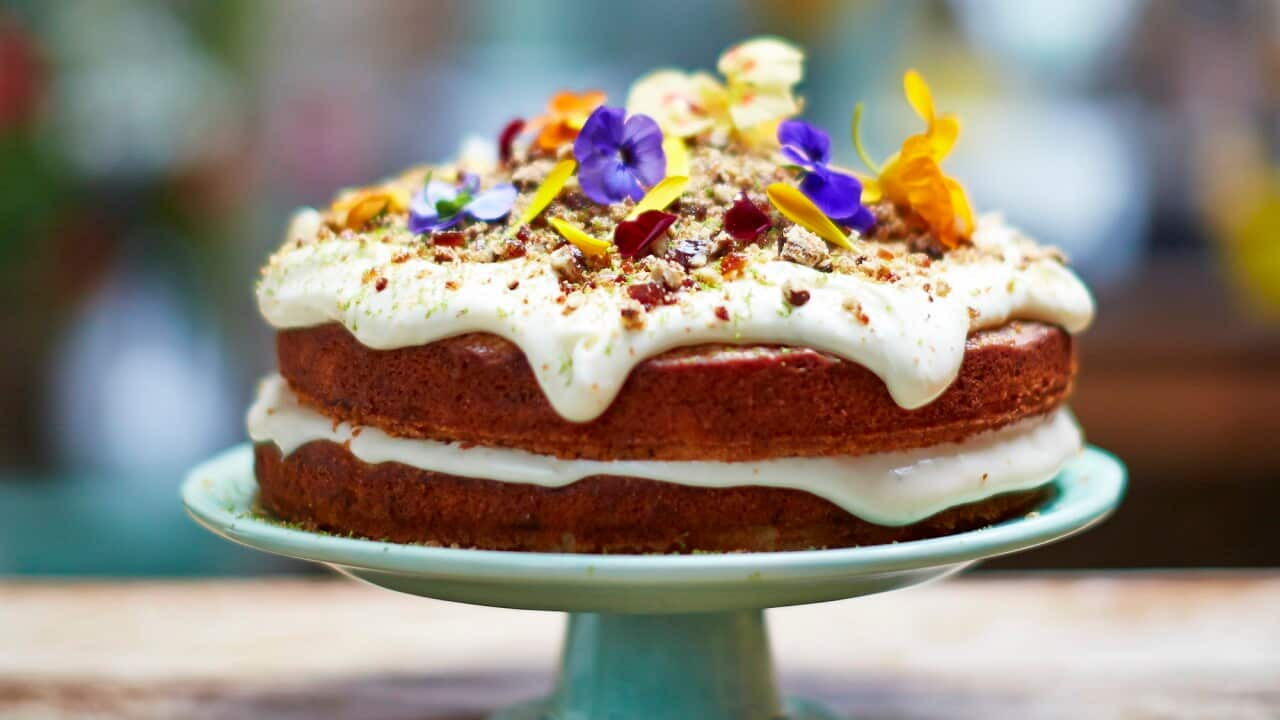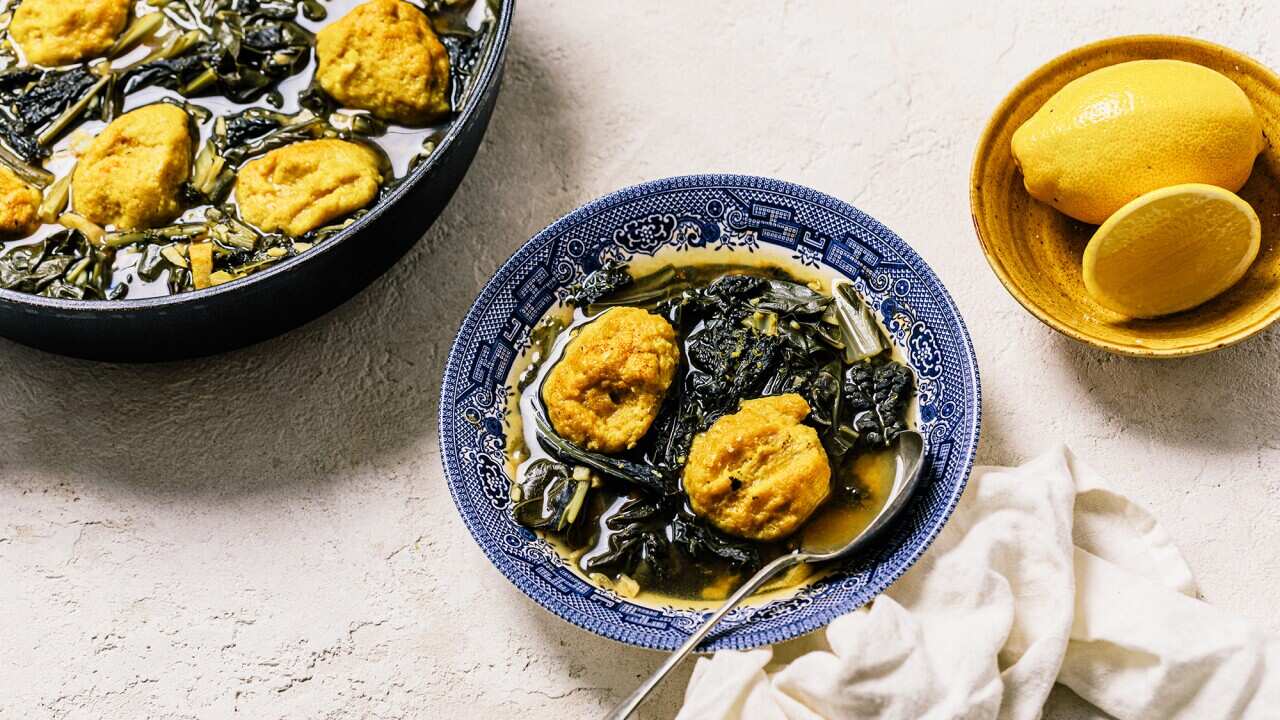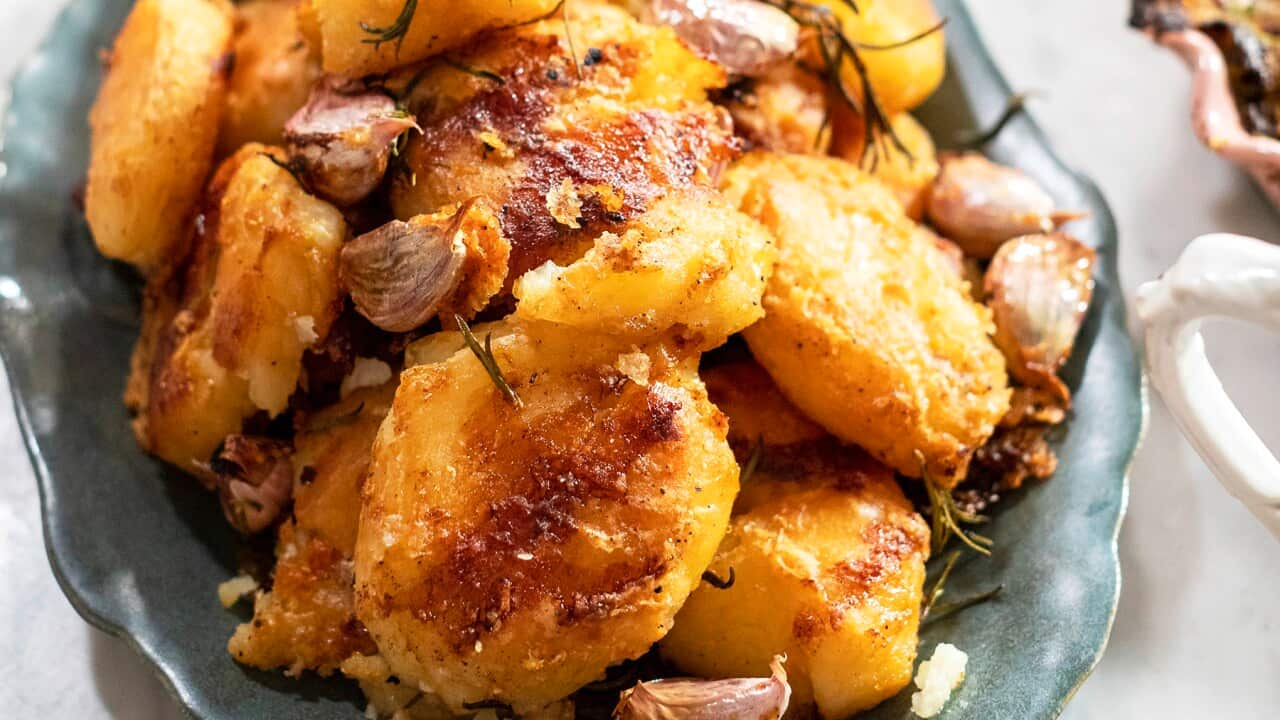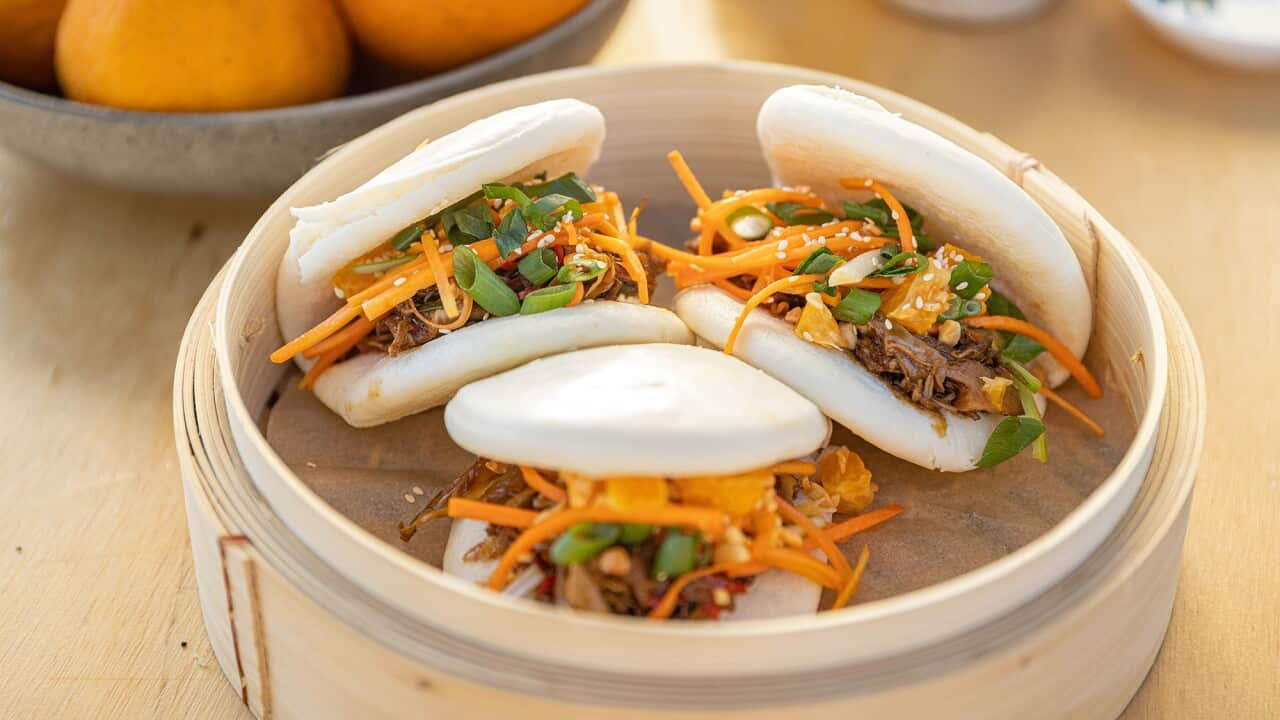serves
6
prep
20 minutes
cook
1 hour
difficulty
Easy
serves
6
people
preparation
20
minutes
cooking
1
hour
difficulty
Easy
level
Ingredients
Caramel
- 220 g (1 cup) caster sugar
- 2 tbsp water
- 1 tbsp ground galangal powder
- 4 x 1 cm-thick slices galangal
Flan
- 8 egg yolks
- 375 g can sweetened condensed milk
- 400 g can coconut cream
- 1 vanilla bean, split and scraped
Cooling time: 10 minutes
Instructions
Preheat the oven to 150ºC conventional (130ºC fan-forced).
For the caramel, combine the sugar, water and galangal powder and slices in a small saucepan over medium-high heat and simmer until sugar is dissolved, then reduce to medium and simmer, without stirring, until sugar changes colour to deep brown. Remove the galangal pieces from the caramel, divide among six ¾-cup capacity ramekins. Place ramekins in a deep roasting tray and set aside to cool.
For the flan, place the egg yolks, condensed milk, coconut cream and vanilla bean seeds in a large bowl and whisk together until well combined. Strain the custard mixture into the ramekins, then cover with foil.
Fill the roasting tray with boiling water to reach halfway up the ramekins, then carefully place the tray in the oven.Bake for 1 hour or until firmly set. Remove from oven and allow to cool for 10 minutes.
Carefully invert each ramekin onto a serving plate and tap the bases to release the flan. Serve warm or at room temperature.
Cook’s note
• I like to serve spun sugar on top of my flan to add another layer of texture as well as enhancing the presentation. I also like to garnish with lemon balm leaves to balance out the sweetness.
• You can also use this recipe to make one large flan, using a 20 cm diameter cake tin (it’s not ideal to use a springform one as the caramel will leak out).
This recipe is from - a brand new series airing weeknights at 6pm on SBS. Can the passion of a home cook beat the skills of a professional chef? Missed all the action? Catch-up online and get all the recipes .
Cook's Notes
Oven temperatures are for conventional; if using fan-forced (convection), reduce the temperature by 20˚C. | We use Australian tablespoons and cups: 1 teaspoon equals 5 ml; 1 tablespoon equals 20 ml; 1 cup equals 250 ml. | All herbs are fresh (unless specified) and cups are lightly packed. | All vegetables are medium size and peeled, unless specified. | All eggs are 55-60 g, unless specified.








